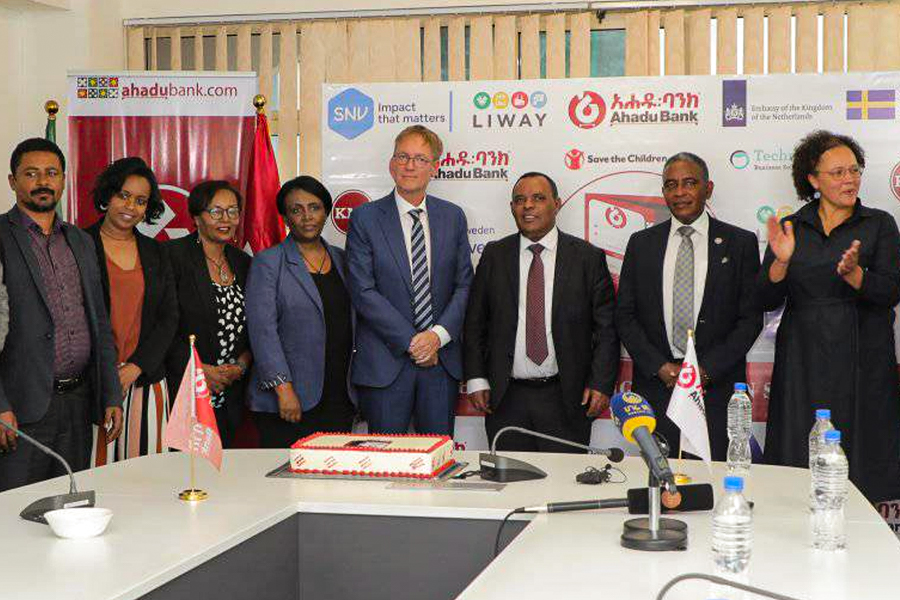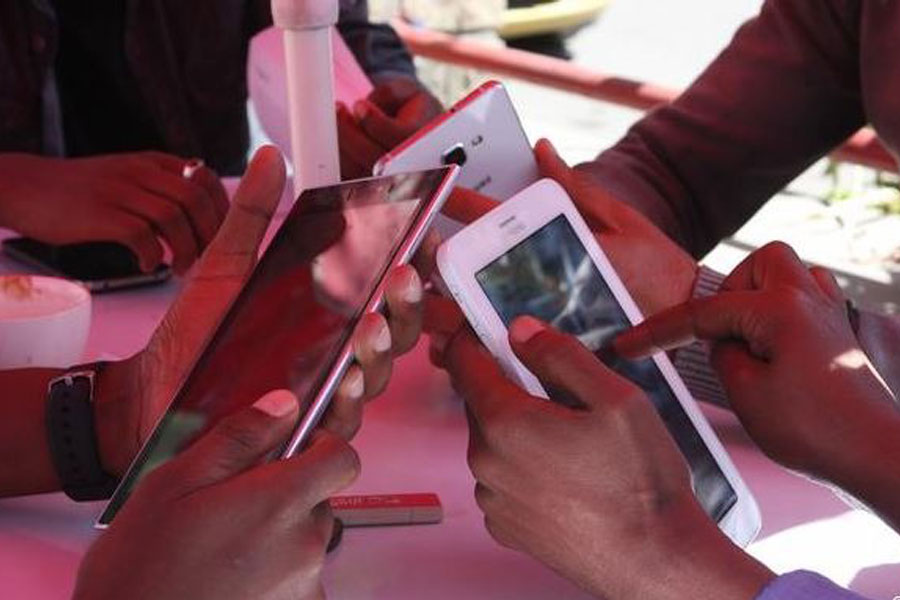
Fortune News | Apr 10,2021
Jun 13 , 2020
By Metsehate Ayenekulu ( project director for Roadmap to Integrating Smart Start in Ethiopia (RISE) and a senior fellow with the Aspen Institute New Voices Fellowship. )
As soon as the first COVID-19 case was reported in Ethiopia, I started working from home in Addis Abeba, because the company I was working at insisted on it. Our internet bills were paid, and we were provided with support for us to adapt to this new normal.
At first, I was optimistic about the arrangement. It would give me an opportunity to spend quality time with my daughter while she is home due to school closures. And I was thankful for the option - a considerable number of people in Ethiopia cannot work from home given the nature of their work.
Quickly, though, my optimism faded. The several Zoom calls I was supposed to make each day turned out to be impossible for me to join because of our poor internet speed. I am also not able to connect on video chat with friends and family since the stay-at-home orders separated us, unlike people in many parts of the world.
Still, I am among the few in my country to even have an internet connection, as slow as it may be. Only around 17pc of the population has internet access in Ethiopia, far lower than Africa’s average of 39.9pc. To download a five-gigabyte file in Ethiopia, it takes an average of 14 hours. The gap between those countries that have the fastest and the slowest internet speed is 125 times. Among the 50 countries with the fastest internet speed, only one is in Africa - Madagascar.
Given the relative privilege the country affords when it comes to internet access, this global pandemic is bringing the experience of the digital divide home. Most importantly, it is calling attention to the disadvantages women face.
To respond to the pandemic and to make sure that essential services like family planning and sexual and reproductive health services are available, organisations, as well as government agencies, are taking on a number of adaptations, for instance, using digital technology to harness the opportunity in telemedicine. This is important since, due to COVID-19, people would be understandably wary to visit health facilities, including girls who need to renew their contraception method.
Therefore, introducing a digital solution is critical to keeping girls safe from COVID-19 and also making sure that they get access to essential health services such as family planning. Countries with better internet connectivity and digital infrastructure are delivering COVID-19 and sexual and reproductive health information using social media channels such as WhatsApp and Facebook.
However, most girls in rural Ethiopia do not have a similar opportunity to access information online. Only 1.4pc of the 15 to 19-year-old girls used internet services, according to the Ministry of Health's 2017 baseline report. This is why organisations that provide personal protective equipment and continuous orientation both on COVID-19 and family planning services to the frontline service providers are essential. This way, we can ensure the continuity of family planning information and service provision for girls; however, the impact of our effort is limited due to the travel restrictions and the stay at home protocols.
Some have said COVID-19 is the great equaliser. It is not. Instead, the virus has amplified various inequalities, as we have seen with the higher death rates of black people in both the United States and the United Kingdom. It has also shown the imbalances between those with access to the internet and essential services such as health advice and those without it. Internet access offers immense opportunities to facilitate social, economic and political advancement of a given society. The opposite is also true, and lack of access to quality internet fuels the discrepancy and inequality among countries as well as individuals. These discrepancies are worsening due to the unprecedented COVID-19 pandemic.
The pandemic is a reminder that an illness somewhere is an illness everywhere. Inequality somewhere means inequality everywhere.
This pandemic poses a clear call to action to countries with a significant number of vulnerable populations, including Ethiopia, to transform the challenge of this unprecedented pandemic into an opportunity to address the wide range of inequalities and discrepancies, including the digital divide.
PUBLISHED ON
Jun 13,2020 [ VOL
21 , NO
1050]

Fortune News | Apr 10,2021

Radar | Jan 09,2021

Radar | Aug 20,2022

Radar | Jun 20,2020

Life Matters | Jul 18,2021

Radar | Oct 12,2024

Fortune News | Apr 26,2025

Agenda |

Commentaries | Dec 25,2018

Radar | Sep 11,2020

Dec 22 , 2024 . By TIZITA SHEWAFERAW
Charged with transforming colossal state-owned enterprises into modern and competitiv...

Aug 18 , 2024 . By AKSAH ITALO
Although predictable Yonas Zerihun's job in the ride-hailing service is not immune to...

Jul 28 , 2024 . By TIZITA SHEWAFERAW
Unhabitual, perhaps too many, Samuel Gebreyohannes, 38, used to occasionally enjoy a couple of beers at breakfast. However, he recently swit...

Jul 13 , 2024 . By AKSAH ITALO
Investors who rely on tractors, trucks, and field vehicles for commuting, transporting commodities, and f...

Nov 1 , 2025
The National Bank of Ethiopia (NBE) issued a statement two weeks ago that appeared to...

Oct 25 , 2025
The regulatory machinery is on overdrive. In only two years, no fewer than 35 new pro...

Oct 18 , 2025
The political establishment, notably the ruling party and its top brass, has become p...

Oct 11 , 2025
Ladislas Farago, a roving Associated Press (AP) correspondent, arrived in Ethiopia in...